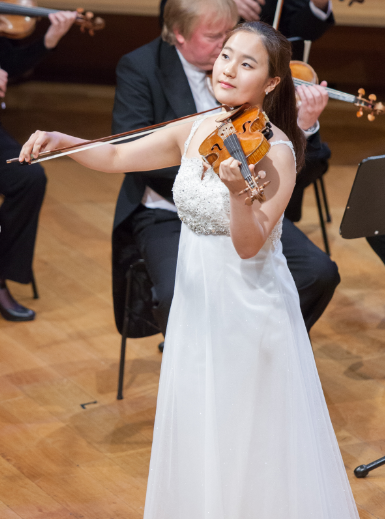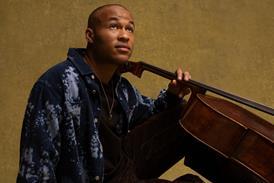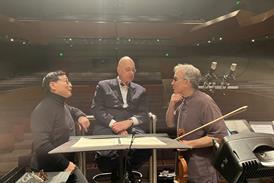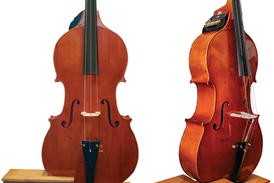The violinist won the competition in Brussels in May 2015, receiving €25,000, concert performances and the loan of the ‘Huggins’ Stradivarius for four years.

The following is an extract from 'Strategies for Success', The Strad’s article on preparing for competitions, published in the September 2015 issue
The correct mindset for a competition is to go there expecting to enjoy it. If you’re not having a good time, every competition will be a difficult experience and the results won’t be good.
Normally I practise for around 5–6 hours per day. For the last few weeks of a competition that might go up by an hour or two. I don’t tend to divide up my practice time, and I won’t insist on doing an hour of scales before going on to practise the repertoire. What’s most important for me is being able to find the parts that don’t feel clean and comfortable, and knowing how to fix them. If I come to a passage that needs work, I’ll practise it very slowly, maybe for up to two hours, until I feel it’s completely fixed.
When it comes to finding my own interpretation, I like to search out recordings of David Oistrakh and Jascha Heifetz – not to copy them but to hear how they put their own slant on the same piece. Also, watching videos of younger players on YouTube can give me ideas of how to prepare and practise: it can be useful to see what not to do. And again, when I’m at the competition, the most valuable thing is to hear the other candidates in performance and discover how they’re tackling the same problems and interpreting the same pieces as me.
That festival feeling: Postcard from Odense

Davina Shum reports on the violin final of the Carl Nielsen International Competition in Denmark, an event that encourages a unique sense of collaboration and support between competitors
- 1
- 2
- 3
- 4
- 5
- 6
 Currently
reading
Currently
reading
How to prepare for a competition: Queen Elisabeth winning violinist Ji Young Lim
- 8
- 9
- 10
- 11
- 12
- 13
- 14




































































No comments yet